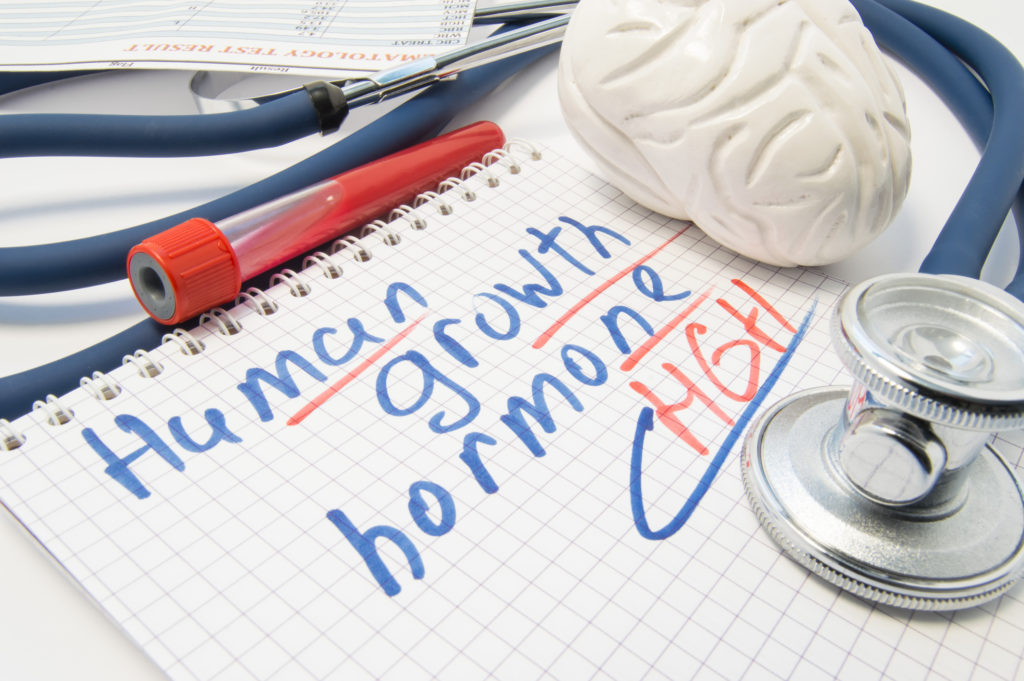Somatropin therapy is the administration of synthetic growth hormone (GH) to treat growth hormone deficiency (GHD) and related conditions in both children and adults. Somatropin, a recombinant form of human growth hormone, works by mimicking the action of naturally occurring growth hormones in the body, stimulating growth, cell regeneration, and metabolic processes.

Primary Uses of Somatropin Therapy
Somatropin therapy is prescribed for several conditions:
- Growth Hormone Deficiency (GHD): Both in children with pituitary dwarfism and in adults with adult-onset GHD, somatropin promotes normal growth, bone density, and muscle mass.
- Pediatric Growth Disorders: Somatropin is used for conditions like:
- Turner Syndrome: A genetic disorder affecting development in females.
- Prader-Willi Syndrome: A genetic disorder with symptoms including growth failure and muscle weakness.
- Chronic Kidney Disease (CKD): GH can help manage growth delays associated with CKD.
- Idiopathic Short Stature: When children are significantly shorter than their peers with no identifiable cause.
- HIV-Associated Wasting: Somatropin can help mitigate muscle wasting in patients with HIV/AIDS by promoting muscle growth and improving physical stamina.
- Short Bowel Syndrome (SBS): Used as an adjunct therapy to improve nutrient absorption in people with SBS, a condition where a significant part of the small intestine is missing or nonfunctional.
- Muscle Wasting in Chronic Illnesses: Growth hormone therapy can help counteract muscle loss in various chronic conditions, although this usage is more specialized and less common.
Benefits of Somatropin Therapy
- Increased Height and Growth in Children: Somatropin therapy helps children achieve closer-to-normal height for their age, especially if treatment is started early.
- Enhanced Muscle and Bone Density: GH improves muscle mass and bone density, reducing the risk of fractures and improving physical strength.
- Improved Metabolism: Somatropin therapy increases metabolism and energy levels, contributing to better physical endurance and, in some cases, improved quality of life.
- Fat Reduction: Growth hormone therapy promotes fat breakdown, especially abdominal fat, which is beneficial for body composition and metabolic health.
- Enhanced Quality of Life: For those with GHD, somatropin therapy can improve mood, cognition, and overall energy levels, especially in adults who may experience fatigue and mood changes due to low GH levels.
How Somatropin Therapy Is Administered
Somatropin is given by subcutaneous injection (under the skin) and is typically administered once daily, either in the evening or as directed by a healthcare provider. Injection pens with prefilled cartridges (e.g., Genotropin, Norditropin) make administration easier and allow for precise dosing.
Monitoring and Adjusting Somatropin Therapy
Since somatropin therapy needs to be personalized, it is closely monitored by a healthcare provider with regular follow-up appointments and blood tests to track growth hormone levels, IGF-1 (a hormone that reflects GH activity), and other health markers. Dosage adjustments may be made based on growth rate in children or symptom improvement in adults.
Potential Side Effects of Somatropin Therapy
While generally safe when used under medical supervision, somatropin therapy can have side effects, including:
- Joint and Muscle Pain: Fluid retention can lead to discomfort in joints and muscles.
- Swelling (Edema): Particularly in the extremities or face, due to increased fluid retention.
- Increased Blood Sugar Levels: Somatropin can decrease insulin sensitivity, potentially leading to hyperglycemia or type 2 diabetes, particularly in those at risk.
- Headaches: Some individuals may experience mild to moderate headaches.
- Carpal Tunnel Syndrome: Prolonged use can lead to nerve compression issues like carpal tunnel syndrome.
Duration of Therapy
- In Children: Somatropin therapy typically continues until the child reaches their predicted adult height or completes puberty. Regular assessments help determine when therapy should be discontinued.
- In Adults: Therapy duration varies based on individual needs, but it is often continued long-term if growth hormone deficiency symptoms persist and the patient benefits from therapy.
Important Considerations
- Contraindications: Somatropin is not recommended for people with certain conditions, including active cancers, uncontrolled diabetes, or severe obesity in Prader-Willi syndrome due to increased risks.
- Cost and Insurance: Growth hormone therapy can be costly, although most insurance plans cover somatropin for approved medical conditions. Patient assistance programs from manufacturers can also help reduce out-of-pocket expenses.
Summary
Somatropin therapy is a transformative treatment for growth hormone deficiencies and associated disorders, providing benefits such as increased height in children, improved muscle and bone density, and enhanced quality of life in adults. While it requires consistent monitoring and medical oversight to manage dosage and side effects, somatropin therapy can significantly improve overall health outcomes for those with growth hormone deficiencies.
